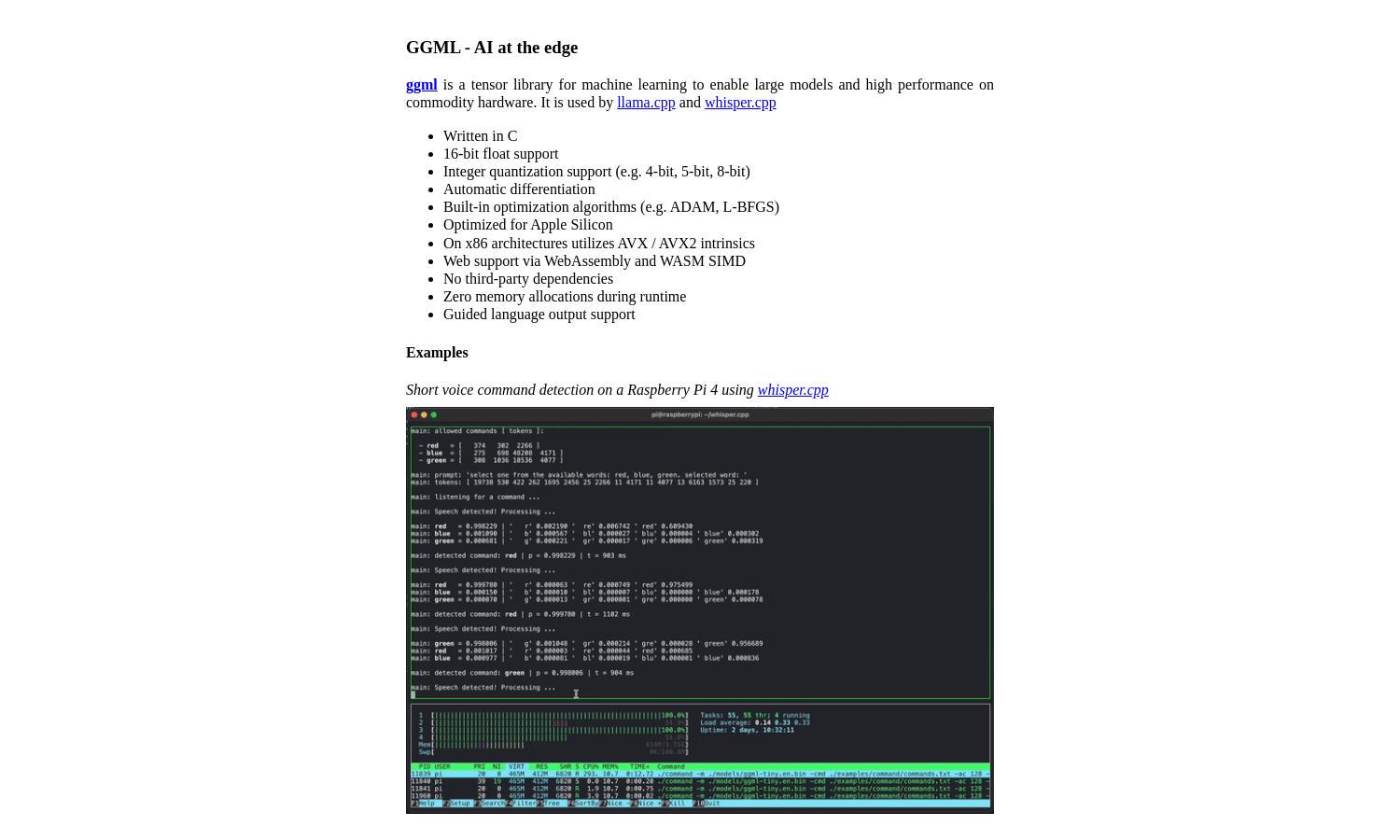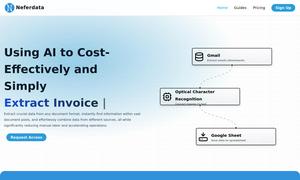ggml.ai

About ggml.ai
ggml.ai is an innovative tensor library that facilitates efficient on-device inference for machine learning models. It empowers developers to utilize large-scale models on standard hardware with features like automatic differentiation and optimized performance, making it ideal for projects aiming for high-quality AI outcomes.
The pricing plans for ggml.ai are currently free as it operates under the MIT license, encouraging contributions and collaboration. However, future commercial extensions may be developed, offering advanced features for users seeking specialized capabilities, ensuring continued growth and support for the community.
ggml.ai boasts a user-friendly interface that enhances the browsing experience. Its minimalistic design fosters simplicity, allowing users to navigate seamlessly through features with ease. Unique aspects include straightforward access to documentation and an engaging development community, promoting exploration and innovation.
How ggml.ai works
Users interact with ggml.ai by accessing the platform to utilize its tensor library for machine learning. Starting with easy onboarding, users can explore functionalities such as model inference and optimizations without complexities. The focus on simplicity ensures efficiency while supporting a broad range of hardware environments.
Key Features for ggml.ai
Efficient Model Inference
The efficient model inference capability of ggml.ai allows developers to deploy large models on commodity hardware. This unique feature ensures high performance while minimizing complexity, encouraging broad usage and experimentation among AI enthusiasts and professionals.
Automatic Differentiation
Automatic differentiation in ggml.ai streamlines the process of computing gradients, which is essential for training machine learning models. This key feature enhances user productivity by simplifying complex calculations, making ggml.ai an invaluable tool for researchers and developers alike.
Cross-Platform Support
ggml.ai offers robust cross-platform support, enabling seamless deployment on Mac, Windows, Linux, iOS, Android, Raspberry Pi, and Web. This distinct feature ensures that users can achieve consistent performance across various environments, enhancing accessibility and usability for a diverse audience.
You may also like:








